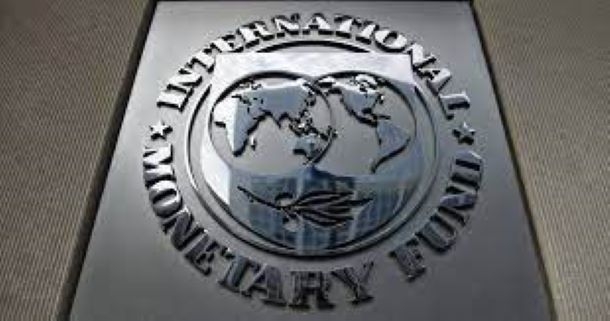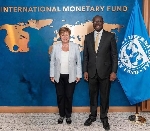IMF approves US$3.5bn for Côte d’Ivoire
 IMF
IMF
The Executive Board of the International Monetary Fund (IMF) has approved 40-month arrangements under the Extended Fund Facility (EFF) and the Extended Credit Facility (ECF) for Côte d’Ivoire in the amount of SDR 2,601.6 million (equivalent to 400 per cent of quota or about US$3.5 billion).
The programme is consistent with the authorities’ 2021-25 national development plan (NDP) and aims to maintain macroeconomic stability in the near term while laying the foundation for deeper economic transformation towards upper middle-income status over the medium term.
The program will also help Côte d’Ivoire raise its contribution to the regional international reserves pool.
The Executive Board’s decision enables an immediate disbursement of SDR 371.7 million (US$495.4 million), which the Ivorian authorities intend to use for budget support.
Hit by triple shocks, namely the pandemic, the adverse spillovers of Russia’s war in Ukraine, and the global monetary tightening, Côte d’Ivoire faces growing macroeconomic imbalances.
The authorities are committed to pursue their agenda to promote private sector led and inclusive growth, as well as to strengthen fiscal consolidation efforts mainly through domestic revenue mobilisation supported by upfront measures and a comprehensive medium-term revenue strategy to ensure the means to its ambitious social and capital investment programme.
Key structural reforms aim to further improve business climate, including by strengthening governance, increasing financial inclusion, and investing in human capital, and to strengthen resilience to climate change.
At the conclusion of the Executive Board’s discussion, Mr. Kenji Okamura, Deputy Managing Director, and Acting Chair, said: “Consecutive global shocks have strained Côte d’Ivoire’s public finances as well as regional reserves. In response, the authorities are implementing a revenue-based fiscal consolidation, which will complement Fund financing under the EFF/ECF arrangements". "Strong upfront revenue measures, including by reinstating the petroleum pricing mechanism in early 2023, are essential to reduce risks to debt sustainability and support convergence to the WAEMU deficit target. The authorities’ focus on improving the institutional and legislative framework for debt management is also critical to safeguard debt sustainability".
"Over the medium term, sustained domestic revenue mobilisation is key to create fiscal space to finance deeper economic transformation toward upper middle-income status. This will be supported by the development, publication, and implementation of a medium-term revenue mobilisation strategy, which should seek significant reductions in wasteful tax expenditures and tax exemptions, particularly for the VAT; thus, broadening the tax base with a simpler, more transparent, and equitable tax system. The authorities’ commitment to enhance the coverage, transparency, and management of public finances, especially to cover state-owned enterprises, is also important to safeguard fiscal space".
"Steadfast implementation of the structural reforms under the National Development Plan will promote private sector-led growth, including by strengthening governance, expanding financial inclusion, and improving the business environment".
"Resolute implementation of the National Anti-Corruption Strategy and the National Strategy Against Money Laundering and Terrorism Financing will boost transparency and further attract private investment".
"Further investments in human capital development, especially amongst youth and women, will make growth more inclusive. Enhancing resilience to climate change will also be important for achieving a sustainable economic transformation".
Source: Classfmonline.com
Trending Business

GOLDBOD Jewellery unveils festive Christmas and New Year collections
18:17
Importers and Exporters Association kick against planned introduction of AI system at Ghana's ports
11:47
TDC unveils vision for Oxygen City development in Ho
09:59
First Atlantic Bank PLC marks major milestone with oversubscribed IPO and upcoming GSE listing
08:51
IMF unlocks US$380 million disbursement for Ghana under ECF
00:42
GIPC boss outlines government’s key economic priorities for 2026
15:40
GIPC call stronger investment partnership with Suriname
15:32
Non-performing energy sector heads to be sacked -Energy Minister warns
13:14
Insurance brokers do not face trust issues with insurers – Shalbu Ali
12:11
IBAG reflects on a “mixed year” as industry records major wins
11:46




